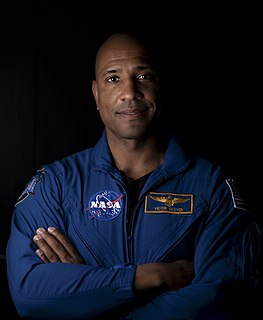A Quote by Jonny Kim
I fundamentally believed in the NASA mission of advancing our space frontier, all the while developing innovations and new technologies that would benefit all of humankind.
Related Quotes
If NASA were advancing a space frontier there would be challenges you've never seen before. You have to be creative and you have to patent some new idea. You get to Mars...well, how do we get the water from the soil? I gotta invent a new device that will do that. And the carbon dioxide in the atmosphere, how can we use that? Can we breathe the oxygen from the carbon dioxide?
The recent period has been marked by a transformation to an economy that is more productive as competitive forces become increasingly intense and new technologies raise the efficiency of our businesses...While these tendencies were no doubt in train in the "old," pre-1990s economy, they accelerated over the past decade as a number of technologies with their roots in the cumulative innovations of the past half-century began to yield dramatic economic returns.
Many people may not recognize that the development of space exploration technologies has already helped benefit Earth in many ways, especially when it comes to communications, Earth observation and even fostering economic growth. Space technologies are surprisingly critical in impacting government, industry and personal daily decision-making.































